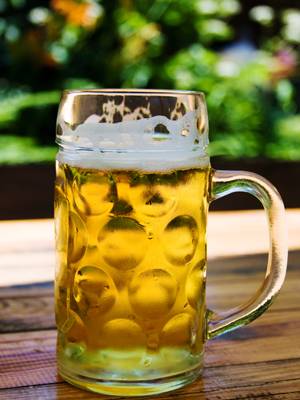EDITORIAL: Drinking age debate needs to continue

Photo Courtesy/Meliha Gojak
August 23, 2008
Underage students who want to get their drink on without breaking the law now have some unlikely allies.
Last week, more than 120 presidents and chancellors from colleges and universities across the country called for lawmakers to consider lowering the drinking age from 21 to 18.
This would entail either a drastic reform or repeal of the National Minimum Drinking Age Act of 1984, which denies a state 10 percent of its federal highway funding if it sets its drinking age lower than 21.
The movement to change the drinking age, known as the Amethyst Initiative, calls to light the culture of binge-drinking that forms off campus. Many of us have seen this for ourselves, or at least seen the effects.
This is a surprisingly savvy move that displays an honest understanding of the world we, as college students, live in. Students are taught abstinence as the only option when it comes to alcohol, until they turn 21, which is perilously ignorant to the reality of the situation.
We all know it takes little to no effort these days to obtain alcohol when you’re underage, whether it’s having an adult make the purchase, sporting a fake ID or finding that jackpot bar or gas station that doesn’t card.
Under the current state of the law, 21st birthdays are celebrated by a lot of college students with reckless abandon. A study by researchers at the University of Missouri this year found that 24 percent of women and 34 percent of men complete the “21 for 21” challenge by consuming 21 drinks or more on their 21st birthdays. The maximum number of drinks among women was about 30, and the maximum for men was a staggering 50.
You could argue that 18 is a safer age for numerological reasons — matching 18 drinks and 18 years is, theoretically, less risky. But more than anything, the study suggests that, by age 21, people generally aren’t any more responsible when drinking than their underage counterparts.
It’s great that important people are recognizing the problem and leading the way for change. However, we think more debate is needed about whether 18 is actually the right age to switch to.
College towns are veritable Willy Wonka wonderlands for drinking, and coupling that with a student’s first foray at a university is a recipe for a bombed first semester. Not to mention the radical change it would introduce to our high schools. Currently alcohol is not as easy to come by in high school, but if seniors can buy and distribute at 18, it suddenly becomes a local problem, not just one for the universities.
People will always abuse alcohol — that’s never going to change. But this initiative is a good step toward identifying and minimizing the problem. Personal experience is the only way most people learn their own limits and the dangers of binge-drinking, and the earlier people learn, the better.






